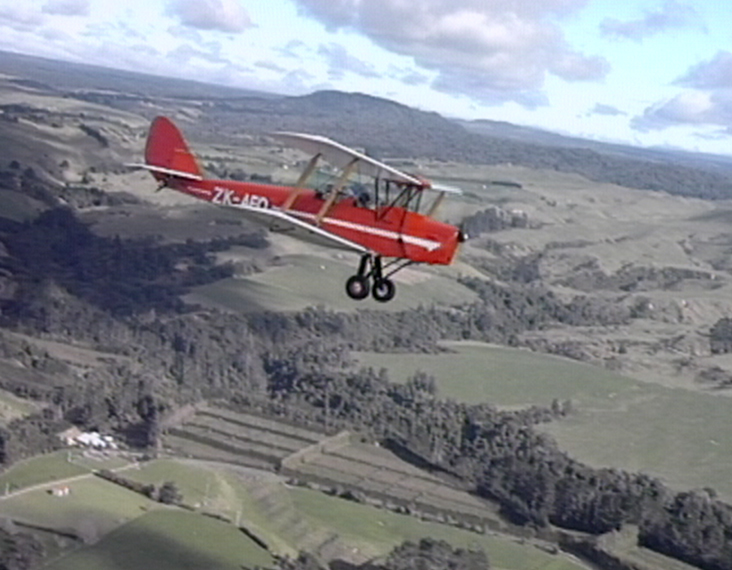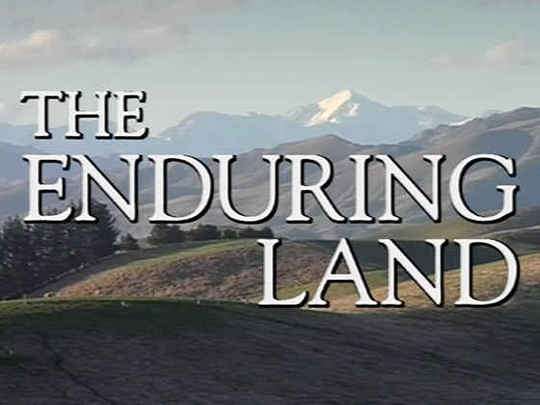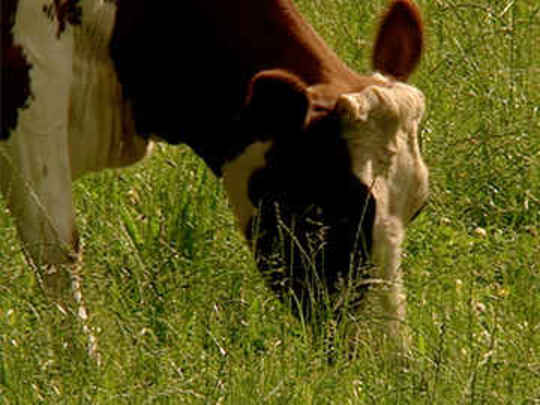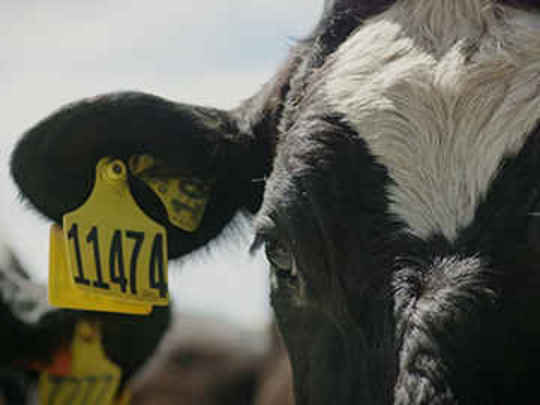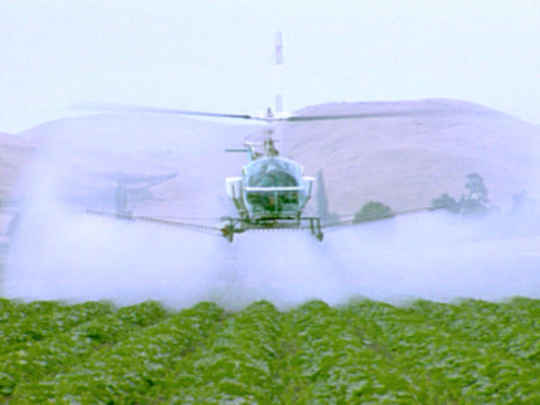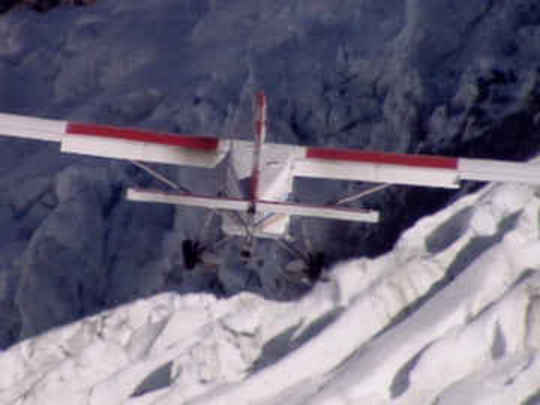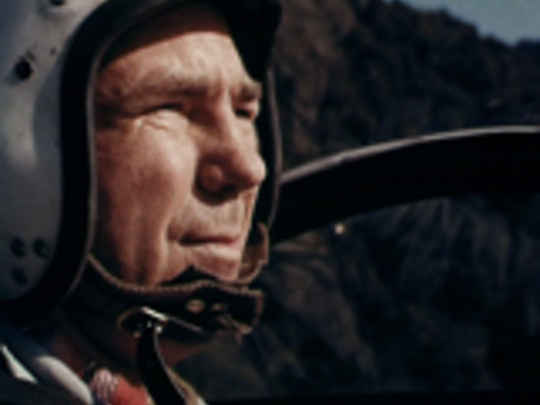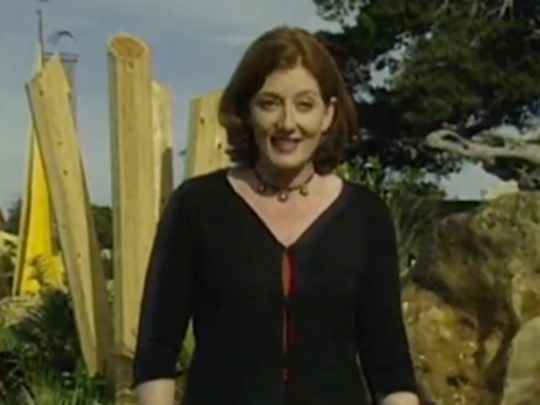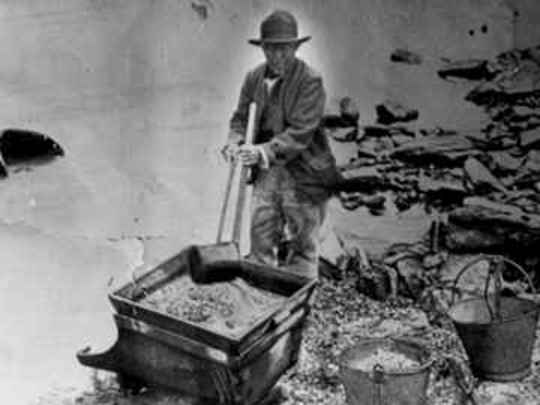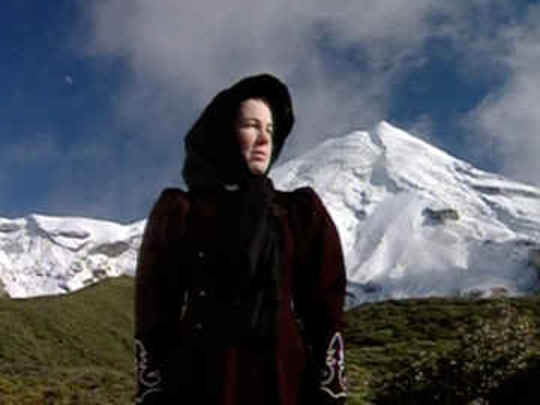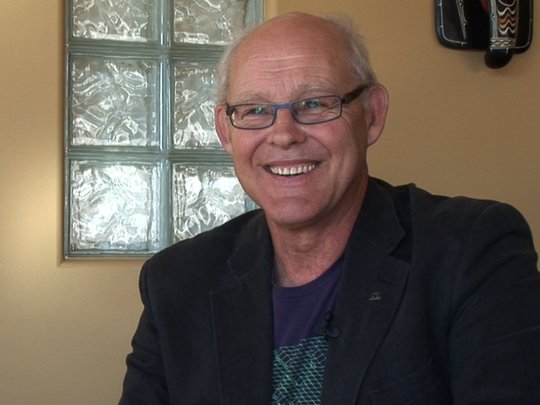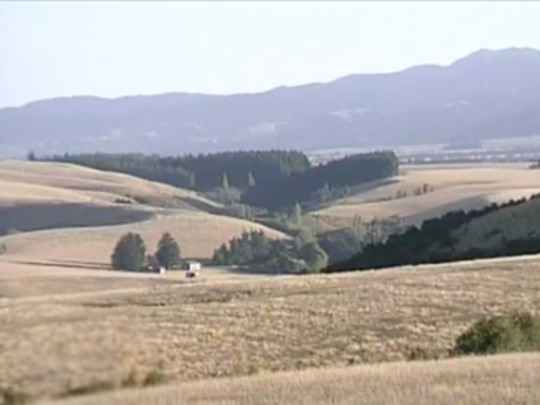Early settlers released rabbits everywhere, in the fervent hope that they would breed and multiply. In the 1850s a gentleman called Ruck Keene released 12 rabbits in the Nelson area. Twenty years later he was a ruined man, surrounded by rabbits.
– Presenter Ruud Kleinpaste
...this intensive use of the land led to soil exhaustion in a very short time. Parts of the South Island started to resemble the dust bowls of the American Midwest. This was the first indication that the fertility of the virgin soil had its limits.
– Presenter Ruud Kleinpaste on the effects of large scale wheat farming in the late 1800s
When a pilot for the Ministry of Works called Alan Pritchard went flying one morning in the 1930s, nobody would have guessed that his flight was to begin an agricultural revolution.
– Presenter Ruud Kleinpaste on the Kiwi invention of aerial topdressing, early in this episode
Women who couldn't go farming contributed to the war effort in other ways. Wool was scarce because of commandeering for uniforms, but keen knitters still found plenty to knit up for the troops and prisoners of war. By 1941, New Zealand women had knitted 3200 pairs of gloves, 8600 pairs of socks, 94,000 balaclavas, 95,000 scarves and 98,000 mittens.
– Presenter Ruud Kleinpaste on how Kiwi women helped servicemen during WWII
Three years ago the council were putting up a big plaque to Chew Chong on the side of the road where he had his dairy. It was a Saturday morning and a whole group of people including the Chinese ambassador were there, when all of a sudden a huge articulated milk tanker came along, tooting wildly at the crowd. I thought it rather ironic that here we were, commemorating the start of the dairy industry, and this tanker, symbolising the modern era, was being held up by the ceremony.
– Brian Chong, who plays his grandfather Chew Chong in this episode, The Evening Post (TV Week liftout), 3 December 1990, page 5
Using a sack of seeds and a metal pipe nailed to the bottom of his plane, he sowed lupin seeds over Ninety Mile Beach to bind the shifting sands.
– Presenter Ruud Kleinpaste discusses Alan Pritchard's first aerial topdressing run in the 1940s
